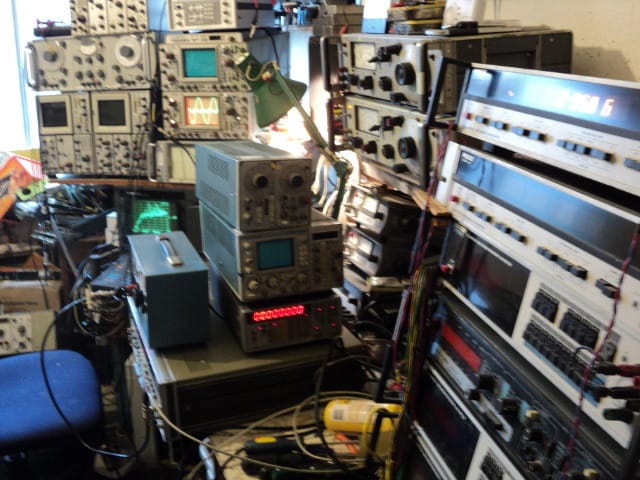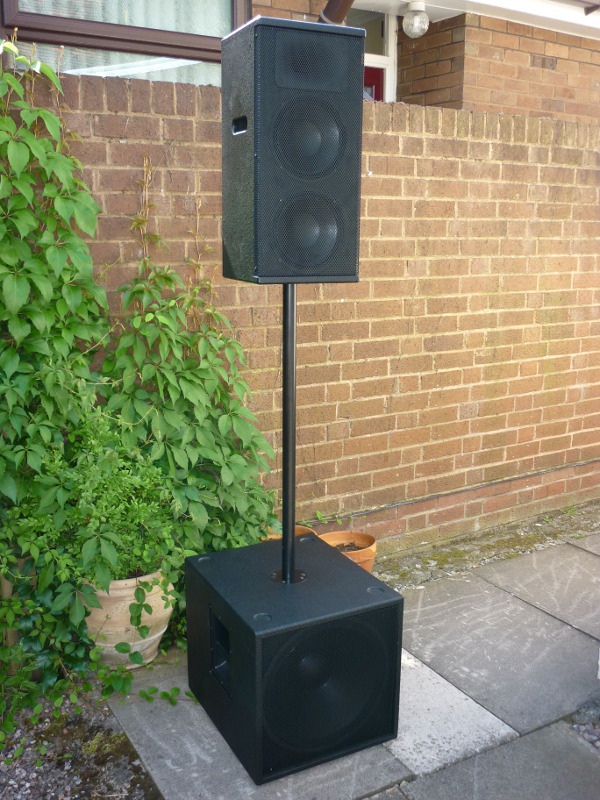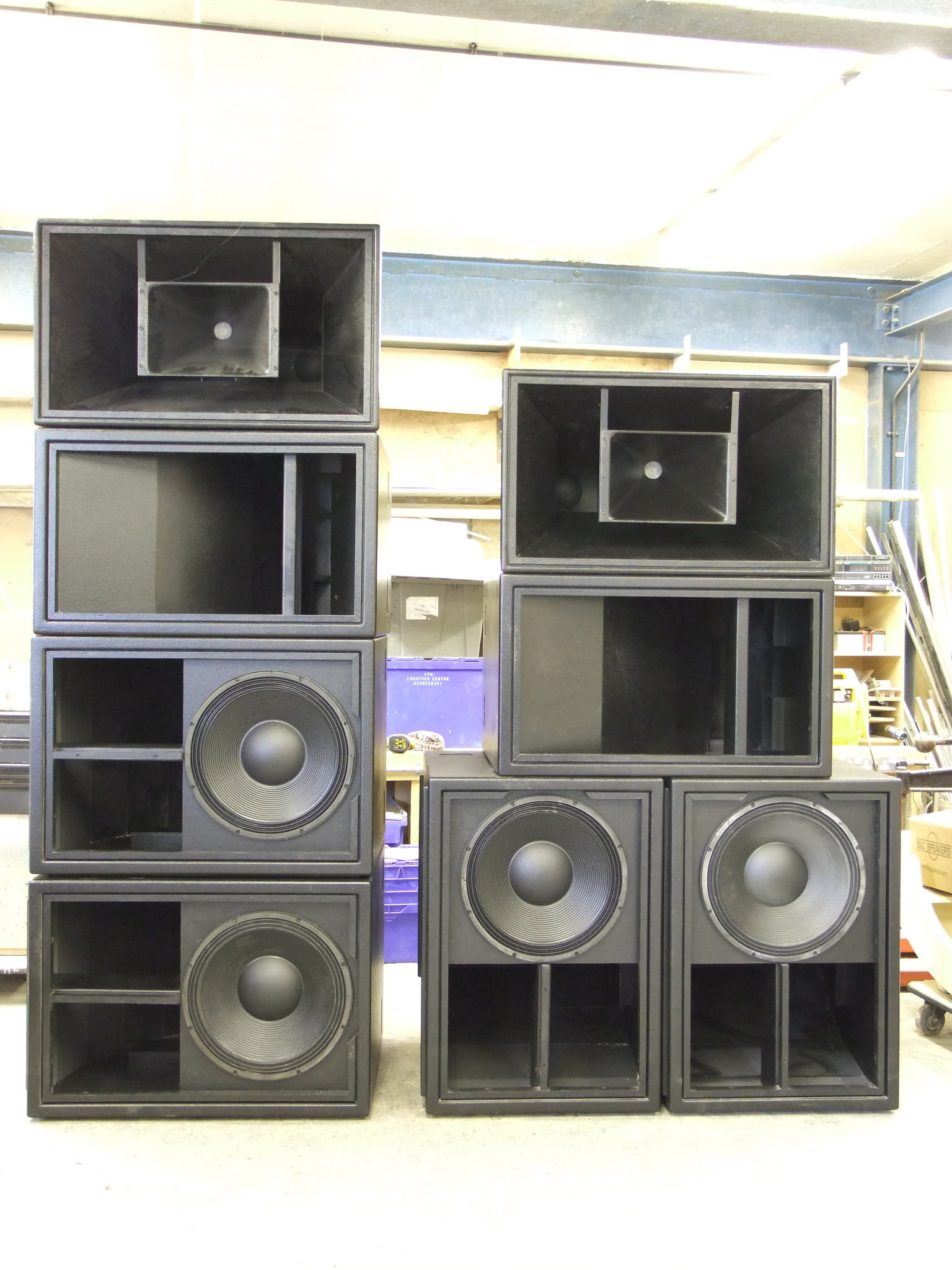- Posts: 51
- Thank you received: 6
Effects of Input/Output Phase differences of Amplifiers?
- audiomik
-
 Topic Author
Topic Author
- Offline
- Senior Member
-

Frequency related Phase differences are known to be a key component of spacial awareness of Sound direction and coherence.
Have found some marked differences in the Frequency/Phase response of different Amplifiers in some recent tests of different designs that I have here; together with some interesting effects relating to Output Impedance when Amplifiers are presented with reactive Loads which 'Speakers present in 'The Real World'.
Let's also add into the 'pot' any VI Phase components attributable directly to the electrical characteristics of the 'Speaker itself.
Has anyone done any research into combinations of both Amplifier and 'Speaker as a System in terms of this Phase/Frequency related Audible spacial awareness effects?
Could this measured Phase difference between different Amplifiers also be one of the 'causes' of differences in how a system or Amplifier sounds?
As a starting point and to show differences:
Some Input/Output Phase tests on Amplifiers running into a Resistive Load of 8ohms I currently have here return the following results:
PSL 501, at 20kHz it's I/O phase difference is -25º, gradually passing
through 0º at around 125Hz, to +20º at 20Hz
Matrix ST400 is a bit better: -15º at 20kHz, again around 0º at 125Hz
and then +10º at 20Hz,
And a C-Audio ST 400 which is better at LF but not quite as good as the Matrix at the HF end; +3.8º Phase difference at 20Hz passing through zero again at around 120Hz but rising to -21.8º at 20kHz.
This C-Audio Amp has now been modified to return an Input/Output Phase difference of less than 1º from 20Hz to 1.5kHz to use for testing VI characteristics of 'Speakers, however it's -3dB LF roll-off is now well below 1Hz!
Mik
Please Log in or Create an account to join the conversation.
- Tony Wilkes
-

- Offline
- Elite Member
-

- Posts: 273
- Thank you received: 3
Gotta put up with it I suppose unless you want an extremely wideband amp.
Tony
p.s. had to use Chrome to log-in as it no longer works on my comp with Firefox 5, it shows me as logged in but when I try to reply to a message I get the log-in page again and it then does nothing !!!
Please Log in or Create an account to join the conversation.
- audiomik
-
 Topic Author
Topic Author
- Offline
- Senior Member
-

- Posts: 51
- Thank you received: 6
thinking more along the lines of the 'accumulated' phase shift which might cause differences.
There are certainly subjective differences between Amplifiers of different design topology using the same 'Speaker well discussed here and elsewhere at length; so looking at what perhaps may be an un-documented specification difference in performance to cause/quantify this.
The 'Spacial awareness effects' potentially tie in with comments such as 'tight' or 'controlled' etc and definition can be lost with the Phase shifts affecting harmonic relationships of program material which might go towards explaining this.
Trouble is that subjective results or opinions can often be very difficult to quantify in physical measurement, so looking for some way of perhaps being able to asses 'better or worse' measurable parameters which affect things, although these might not be published by manufacturers.
Certainly there must be some measurable differences to correlate with subjective results, just what and where is really the issue I'm raising although these may well be a combination of a number of parameters.
Phase differences however look likely as one reasonably easily measurable parameter as a starting point?
Mik
Edit:
PS: had various issues with later versions of FF, so am still using V3 until they sort things......
Please Log in or Create an account to join the conversation.
- tony.a.s.s.
-

- Offline
- Moderator
-

- Posts: 1344
- Thank you received: 12
Peace and goodwill to all speaker builders
Please Log in or Create an account to join the conversation.
- Tony Wilkes
-

- Offline
- Elite Member
-

- Posts: 273
- Thank you received: 3
Frequency response, phase shift and group delay are all linked to one another.
Tony
Please Log in or Create an account to join the conversation.
- audiomik
-
 Topic Author
Topic Author
- Offline
- Senior Member
-

- Posts: 51
- Thank you received: 6
Tony.A.S.S. wrote: Hi Mik, very interesting stuff. Regarding phase, is there a way to get it perfect, or do we have to try to get an amp that has the least variation.
Think 'least variation' is the realistic target, Tony is fairly correct in assuming LP and HP filtering in Amplifiers are a primary cause of Phase Shifts but some other things such as HF compensation/stability circuitry can affect things.
Doubtful it can ever be 'perfect' but perhaps judicial application of All-Pass filtering to compensate for the HF end of Amplifier Audio Bandwidth Phase shifts might be worth looking into en.wikipedia.org/wiki/All-pass_filter , especially where the circuit includes a Voltage follower/inverter/gain stage within it's input circuitry which might be adapted whilst retaining the Power Amplifier section compensation circuitry intact.
Mik
Please Log in or Create an account to join the conversation.
- tony.a.s.s.
-

- Offline
- Moderator
-

- Posts: 1344
- Thank you received: 12
Peace and goodwill to all speaker builders
Please Log in or Create an account to join the conversation.
- Tony Wilkes
-

- Offline
- Elite Member
-

- Posts: 273
- Thank you received: 3
For anyone interested in checking phase etc download a copy of Room EQ Wizard ( www.hometheatershack.com/roomeq/ ) and run your gear i.e. equalisers LMS's etc. in loop thru mode and you will see the effect of changes of EQ etc on the phase.
Tony
Please Log in or Create an account to join the conversation.
- audiomik
-
 Topic Author
Topic Author
- Offline
- Senior Member
-

- Posts: 51
- Thank you received: 6
am thinking that should the signal chain not have good linearity to start with, your changing an EQ setting will end up with different results from an expected or wanted response.
On affordability, achieving phase linearity isn't necessarily a costly exercise although it must be said that some anti-aliasing filters for PWM/DSP designs can be quite horrendous in terms of phase shifts. Think of Nyquist-Shannon sampling theory here in terms of squeezing the 'last hertz' of top end out of a sampled signal chain and the very steep slope filters which are needed for lower sample rate clock frequencies.
There are numbers of different circuit topologies for EQ which perform in different ways; might be an interesting thread in it's own right?
However this is diverging from my original question relating to why some Amplifiers subjectively sound different from others and could Phase response be a measurable contributing factor.......
Mik
Edit: add which Tony this is in reply to!
Please Log in or Create an account to join the conversation.
- Tony Wilkes
-

- Offline
- Elite Member
-

- Posts: 273
- Thank you received: 3
Whilst I can tell the difference instantly between two very high quality studio monitors of different makes I find it impossible to hear the often minute changes that other people discern in power amplifiers.
Not putting down your work in any way, if it was not for pepes like you there would not be any advances at all.
Tony
Please Log in or Create an account to join the conversation.